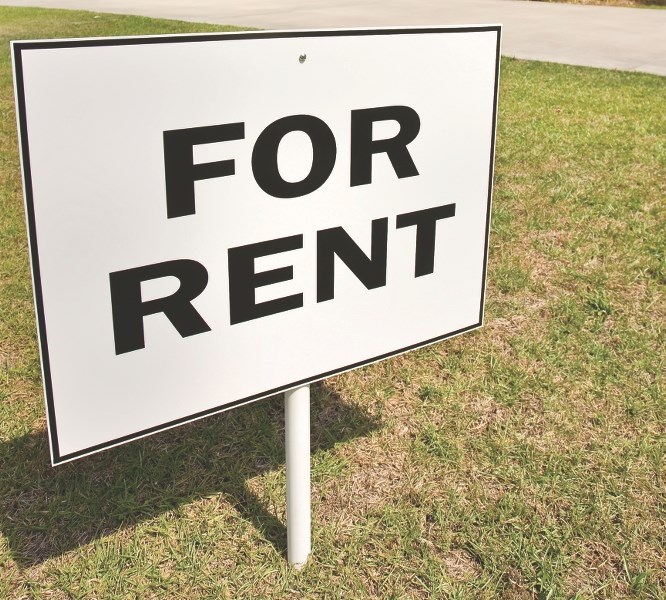COLD LAKE - Cold Lake's council recently addressed the topic of secondary suites, discussing the various challenges and potential solutions associated with their development.
Andrew Jabs, manager of Land Use Planning, Development, and Regulatory Services with the City of Cold Lake, provided detailed information about secondary suites and their significance in adding more units to the municipality’s housing inventory.
At the April 16 Corporate Priorities meeting, Jabs described secondary suites as being "commonly known as basement suites, garage suites, or garden suites." He highlighted that secondary suites represent an effective way to increase housing without the need to subdivide and service new lots.
"They are a common way to add dwelling units to housing inventory by gently intensifying neighborhoods, which means they allow for more housing to be created without the financial and time costs required to subdivide and service new lots, as a dwelling is created at an existing builder site."
Jabs also mentioned that having more of these suites could help make homeownership more attainable, stating, "Additionally, secondary suites may help offset the costs of a mortgage, which may make homeownership more attainable for residents."
However, the development of secondary suites in Cold Lake has experienced fluctuations in recent years. Between 2008 and 2011, there was an average of seven suites developed per year, which increased to 31 suites per year between 2012 and 2014, and then decreased to an average of four suites per year since 2014.
Jabs identified several barriers to the development of secondary suites.
He pointed out that "a secondary suite is of discretionary use according to the current Land Use Bylaw, which means the City must circulate a notice of decision to those affected by the development, thereby increasing the time it takes to approve a development permit for a secondary suite to up to four weeks."
Additionally, obtaining various building permits, including plumbing, electrical, and gas permits, could significantly increase costs. He elaborated, "For example, heating and ventilation systems must be constructed that are independent from the main dwelling. Additional fire separation between the suite and main dwelling is required, and a separate entrance to the suite must be provided."
These costs could range from $25,000 to $75,000, presenting a significant financial challenge to potential developers.
To address these barriers, Jabs proposed several options for consideration.
One option was to amend the Land Use Bylaw to make secondary suites a permitted use, rather than discretionary, which would reduce the development permit fee by $50 and shorten approval timelines by about four weeks. However, this would remove the opportunity for neighbors to appeal the development of a secondary suite.
He noted that in 2008, the City of Cold Lake experimented with allowing secondary suites in a specific part of town, which proved unpopular due to parking congestion and was ultimately removed from the Land Use Bylaw in 2023.
Jabs also discussed the parking requirements for secondary suites, pointing out that "there is a requirement in the Cold Lake Land Use Bylaw to provide at least one dedicated parking space on private lands for a secondary suite development." He emphasized that removing parking requirements might not be ideal in Cold Lake, where most households have multiple vehicles. Jabs explained, "Removing parking requirements is likely to increase congestion and demand for the limited on-street parking, which may ultimately have a negative impact on the area residents."
The administration also considered offering financial incentives to encourage the development of secondary suites.
"A financial incentive will help with the increased costs incurred to develop or legitimize the existing secondary suite." However, he noted that while waiving or reducing the development fee could help, it would only provide a small amount compared to the significant construction costs.
A tax rebate based on the increased assessment of the property was also proposed, but Jabs cautioned that "the potential rebate may still be low compared to the significant overall construction costs."
A more substantial financial incentive of $5,000 to $7,500 per suite might have a more significant impact, similar to the multifamily housing incentive program the City has created.
Council members shared their perspectives on the options.
Coun. Vicki Lefebvre said, "I like the idea of having a secondary suite... I think they can serve a purpose within the area." However, she agreed with Jabs about parking concerns, explaining that "it can cause congestion and it can cause some problems with neighbours."
Lefebvre supported offering incentives to promote secondary suites. Mayor Craig Copeland also expressed support for the $5,000 incentive option.
Coun. Ryan Bailey expressed support for the proposed options but emphasized the importance of preserving the right to appeal for neighbours.
"I wasn't too keen on taking the voice of the neighbourhood away from having a possibility of appeal or the ability to come to council and say, 'Look, this can't happen’,” said Bailey.
He highlighted the potential impact of new developments on local parking and concluded by underscoring the need to maintain the appeal process, saying, "I agree that the ability to appeal.”
Council made a recommendation to administration to start an incentive of $5,000 with a cap of $100,000 and see where the program goes as they will bring it back in a future council meeting.



